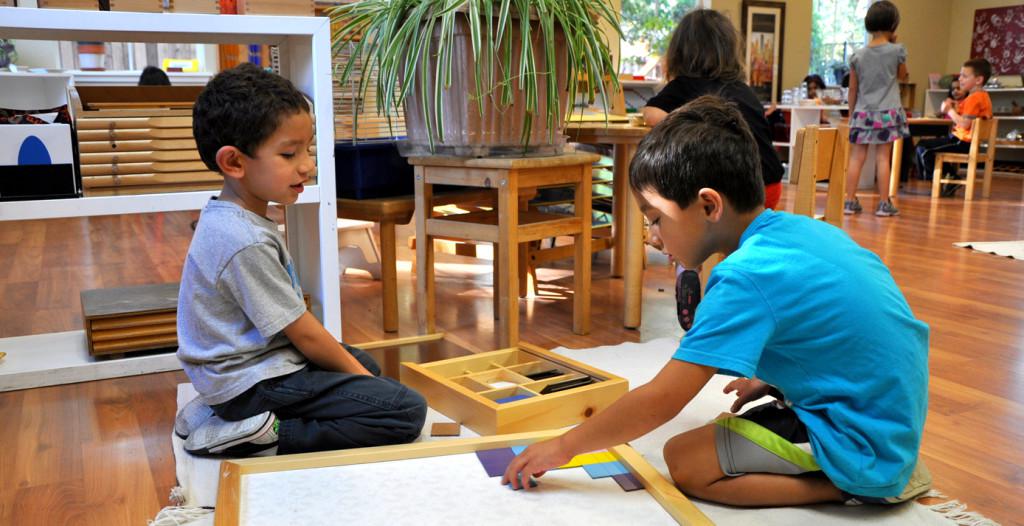 “I know I want a Montessori school for my daughter, but what if I choose the wrong one? I heard there are amazing Montessori schools, and I also heard there are many imitations and knock-offs! I don’t want to make a mistake and then have to look for another school.”
“I know I want a Montessori school for my daughter, but what if I choose the wrong one? I heard there are amazing Montessori schools, and I also heard there are many imitations and knock-offs! I don’t want to make a mistake and then have to look for another school.”
I often hear comments like this from parents who start researching Montessori education for their children. There is so much information out there! The more they discover about Montessori, the harder it is to choose a school.
The Sad Truth About Montessori
It’s tricky to know exactly what constitutes an authentic Montessori program. There is no copyright on the term “Montessori.” That means anyone can open a school and call it “Montessori” without implementing an authentic program.
Why is this important?
A true Montessori program has highly trained teachers, specific learning materials and a carefully planned curriculum that will help your child:
- Learn cooperative social skills
- Develop self-control
- Learn to take initiative
- Develop an analytical mindset
- And, most importantly, develop a lifelong joy, love and excitement for learning
Do you want these outcomes for your child? If so, you need to find an authentic Montessori program.
7 Traits of an Authentic Montessori School
In my 40 years of experience as a teacher and administrator, I have become an expert at identifying authentic Montessori programs. Here are the seven things I look for to make this determination:
- Teacher Training: Good Montessori schools have teachers who were trained by the Association Montessori Internationale (AMI) or the American Montessori Society (AMS). Ask to see the teachers’ graduate diplomas to verify their training.
- Teacher Tenure: Ask how long each teacher and assistant have worked at the school. High turnover in staff will damage your child and to the program itself.
- Length of Class Time: Authentic Montessori programs have a three-hour uninterrupted work period each morning. During this three-hour session, your child will receive lessons from his or her teacher and is never interrupted to join all-class exercises over self-chosen activities.
- Individualized Curriculum: A true Montessori program supports the individual development of your child. This is very different from a one-size-fits-all curriculum that suggests all children are ready to do the same thing at the same time because they are a particular age. In an authentic Montessori classroom, the curriculum conforms to your child instead of your child having to conform to the curriculum.
- Calm and Peaceful Classrooms: A good Montessori classroom is calm and peaceful. You will see many children deep in concentration as they choose an activity and work with it for a good long time. Other children are moving in the classroom as they choose an activity and sit down to work, but the movement in the classroom is slow and purposeful.
- A Beautiful Classroom Environment: Montessori classroom environments are exquisitely prepared with materials laid out by subject on long, low shelves. The materials will be clean and beautiful and alluring to the child. You will see a lot of materials made of wood and glass and natural fibers. You will rarely, if ever, see plastic.Authentic Montessori classrooms have materials that facilitate independence: dull knives to slice apples, miniature graters to shred cheese, ingredients like flour, salt, sugar, yeast and water to make and bake bread, glass vases and fresh flowers to practice flower arranging, or polish and small applicators to shine brass, silver, wood and mirrors.You will see handmade reading materials—never textbooks. You will also see the most amazing mathematics materials that concretize concepts to facilitate understanding in learning instead of mindless memorization—never worksheets or workbooks.
Lastly, you will see the full complement of Montessori materials that allow your child to learn academic subjects in language, mathematics, science, and music.
- Multi-Age Classrooms: Authentic Montessori classrooms group children together by three-year age spans. This means a third of the children in a class will be three years old, a third will be four and a third will be five, turning six. A bona fide Montessori school will ALWAYS have kindergarten included in this age grouping, with three and four-year-old children and will never separate kindergarten children into a different class.The reason? Older kindergarten-age children model respectful behaviors and advanced work that the younger children will eventually one day experience. Younger children certainly benefit from this mentoring—but also the older children, irrespective of personality, are afforded an opportunity of leadership.
How to Use This Information
Knowledge is power. Now that you understand the seven traits of a true, authentic Montessori education, be proactive and ask direct questions when researching schools for your child. Be wary of schools that won’t answer these questions directly.
The bottom line: if you want your child to receive the amazing benefits of Montessori, you have to be a discerning parent!